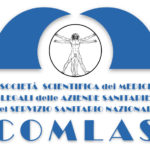
Don’t draw advice and expertise without joining forensic criteriology* or lacking thorough technical and scientific analysis of clinical problems.
Type of practice
Other health practicesTopic Area
Forensic MedicineIn all areas of inquiry and in particular within healthcare professional responsibility, Forensics is committed to pursuing a high-quality reliable method, avoiding fideistic assessments, merely based on personal experience. Moreover it undertakes to erect a barrier grid to the spread of unreliable scientific information in favor of evidence-based, objective and objectively repeatable and verifiable knowledge which has achieved consensus of national and international scientific communities.
* Criteriology: ”Theory of the means and methods of thought to distinguish right from wrong” (Dictionary Devoto-Oli).
Sources
1. Fineschi V, Riezzo I, Neri M, Pomara C, Frati P, Turillazzi E. La valutazione qualitativa delle evidenze scientifiche nel processo: aspettando Godot? Responsabilità civile e previdenza, 2013; 78: 698-712.
2. Benciolini P, Aprile A., La valutazione medico legale della responsabilità per colpa professionale. Una lettura nell’ottica del biodiritto. In Rodotà, Zatti Trattatato di Biodiritto, ed. Giuffrè, Milano, 2011.
3. Fineschi V, Turillazzi E. Responsabilità professionale medica, incertezza del sapere scientifico e valutazione medico-legale: necessità di una aggiornata metodologia, Riv It Med Leg, 2003; 25: 121-136.
4. Fiori A, La perizia medico-legale nella responsabilità medica, in Medicina legale della responsabilità medica, ed. Giuffrè, Milano, 1999.
Attention. Please note that these items are provided only for information and are not intended as a substitute for consultation with a clinician. Patients with any specific questions about the items on this list or their individual situation should consult their clinician.


Recent Comments